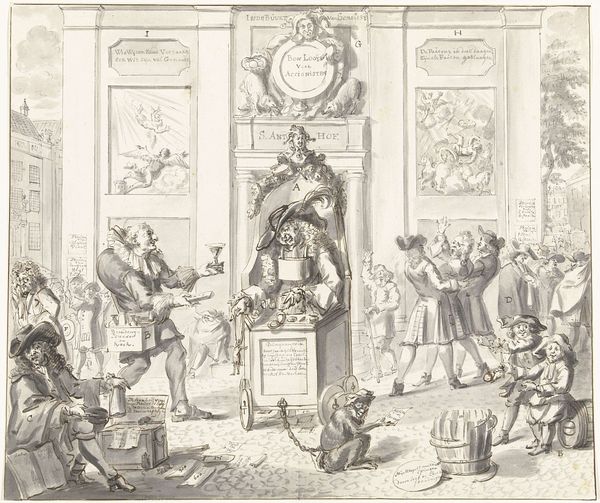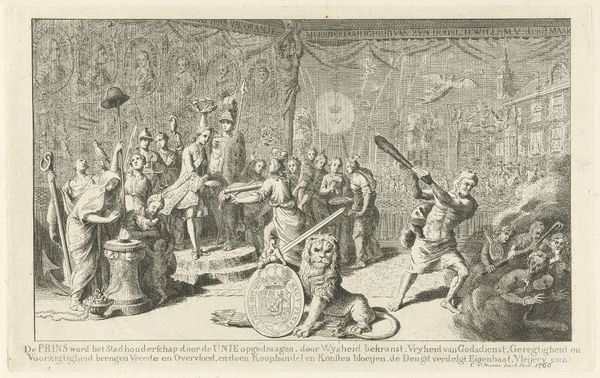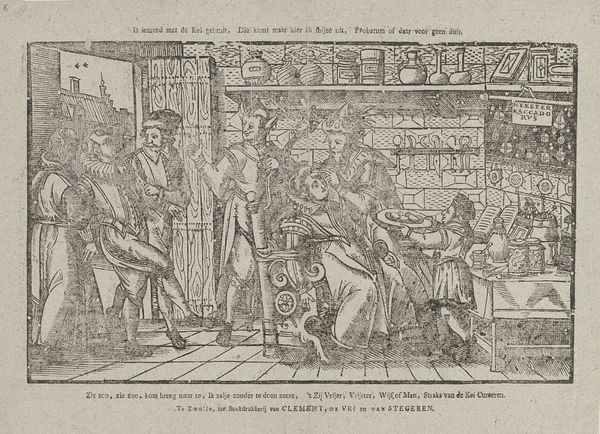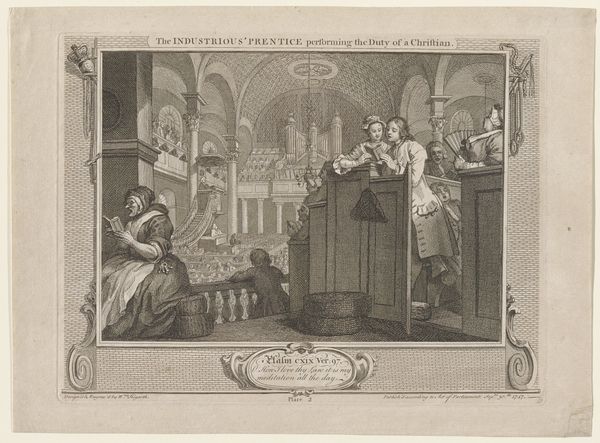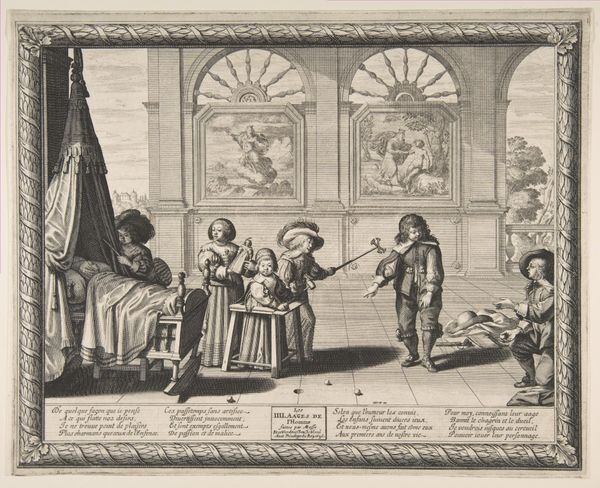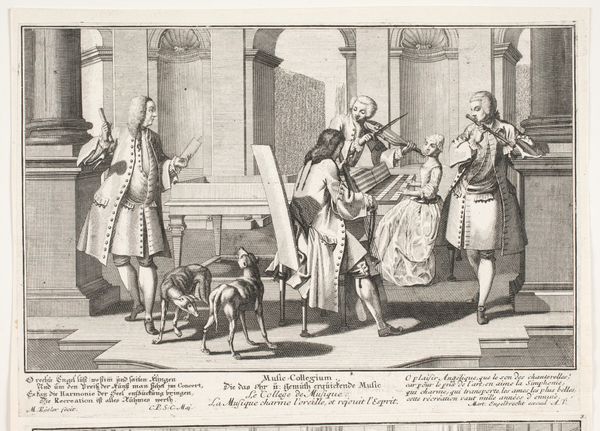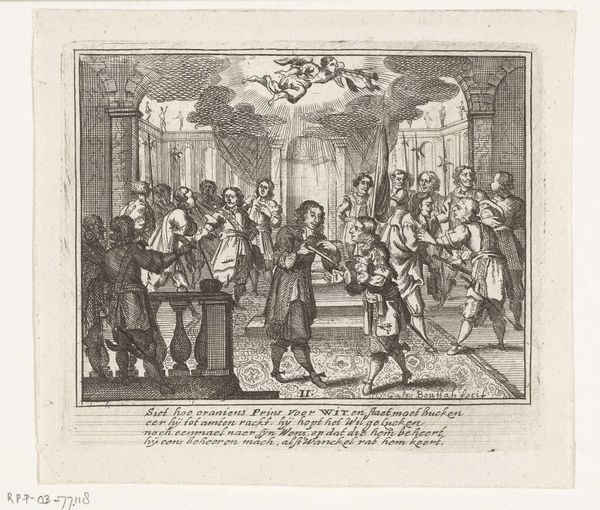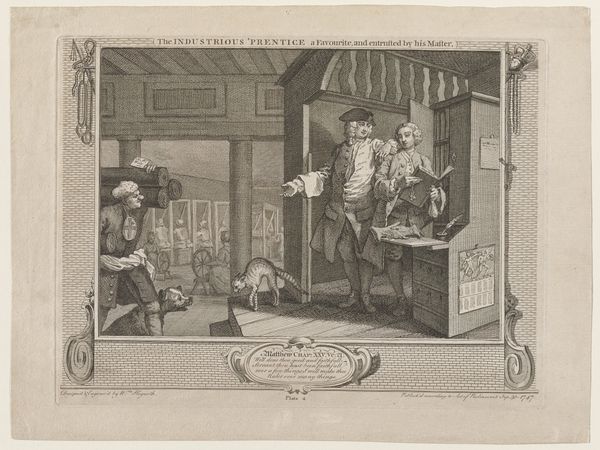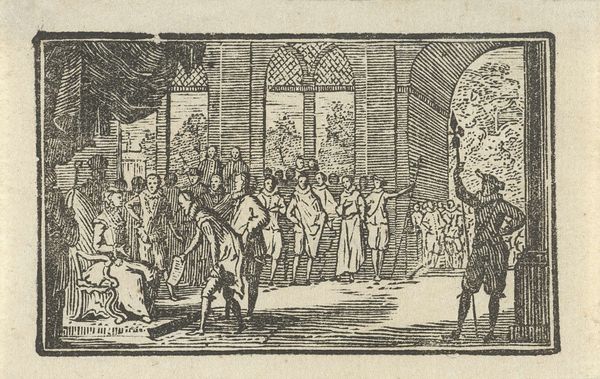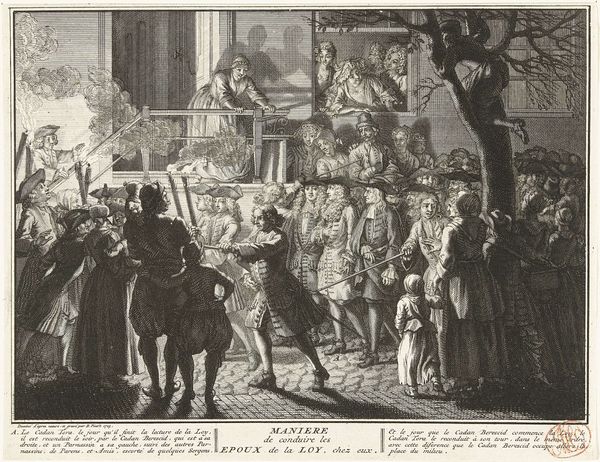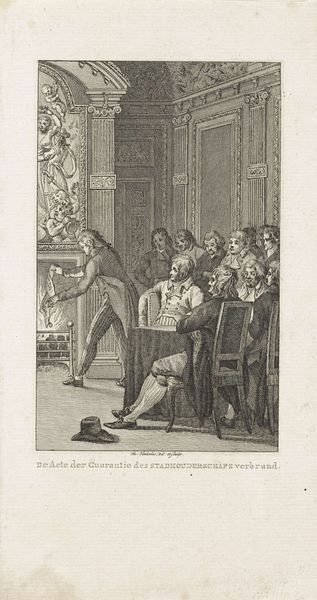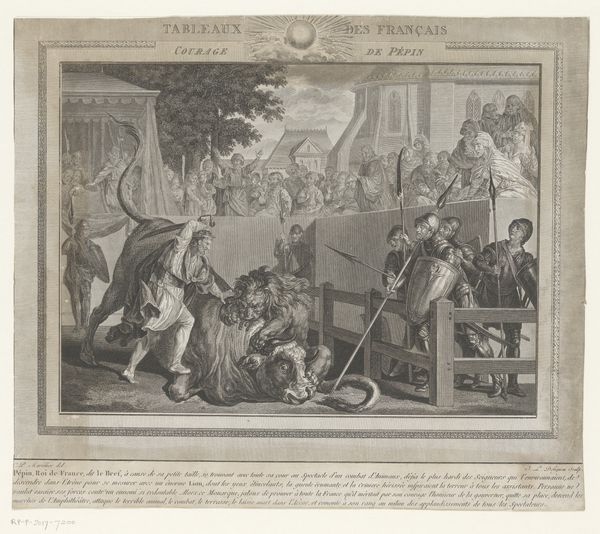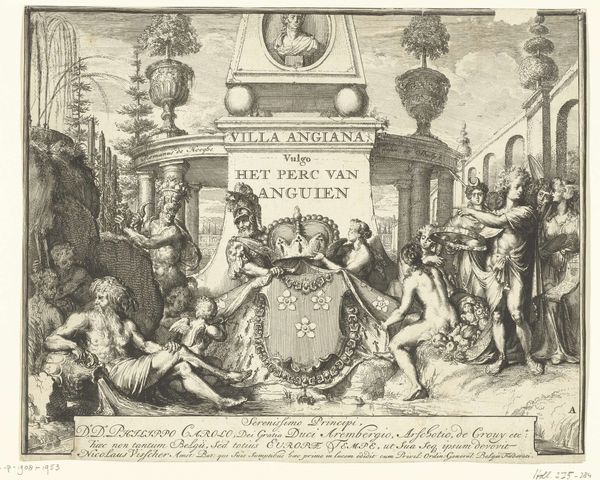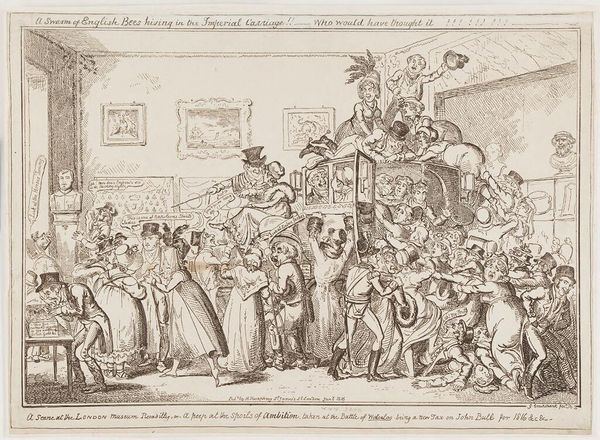
drawing, ink, pen
#
drawing
#
toned paper
#
quirky sketch
#
baroque
#
pen sketch
#
caricature
#
sketch book
#
personal sketchbook
#
ink
#
sketchwork
#
pen-ink sketch
#
sketchbook drawing
#
pen
#
genre-painting
#
history-painting
#
storyboard and sketchbook work
#
sketchbook art
Dimensions: height 327 mm, width 405 mm
Copyright: Rijks Museum: Open Domain
Editor: Here we have "John Law in een rinkelstoel voor het Lazarushuis," created in 1720 by an anonymous artist. It's an ink and pen drawing, full of wonderfully bizarre details. It feels very satirical. What story do you think this piece is telling? Curator: This drawing is a perfect example of how art can act as a mirror to society’s anxieties and power dynamics. This image depicts John Law, the Scottish economist who created the Mississippi Company, which led to a massive financial bubble in France. Notice how Law is portrayed as unstable, in a "rinkelstoel," a chair on wheels, outside the leper house. Editor: I do see that now. What's the significance of placing him there? Curator: It suggests moral and social contamination. Leprosy, even then, was associated with being an outcast. Law's financial schemes enriched some while ruining many others, and this piece visualizes that social disruption. Look at the crowd around him – a mixture of fascination and derision. What do you notice about them? Editor: There are definitely varied reactions – some seem joyous, others more wary. It highlights the range of opinions towards Law at the time, how he was both celebrated and condemned. The piece is dense. How do we decode such a layered criticism? Curator: The image plays on contemporary anxieties regarding financial speculation and its perceived moral decay. Art became a way for the public to engage and critique these powerful, controversial figures. Consider this as a very early political cartoon reflecting widespread financial angst. Editor: It's fascinating how this seemingly quirky sketch offers such a potent commentary on economic power and social repercussions. I will view political cartoons very differently from now on. Curator: Indeed. It makes us consider who holds the power to shape narratives and whose voices are amplified in the process. Thank you, It gave me some insight, too.
Comments
No comments
Be the first to comment and join the conversation on the ultimate creative platform.
